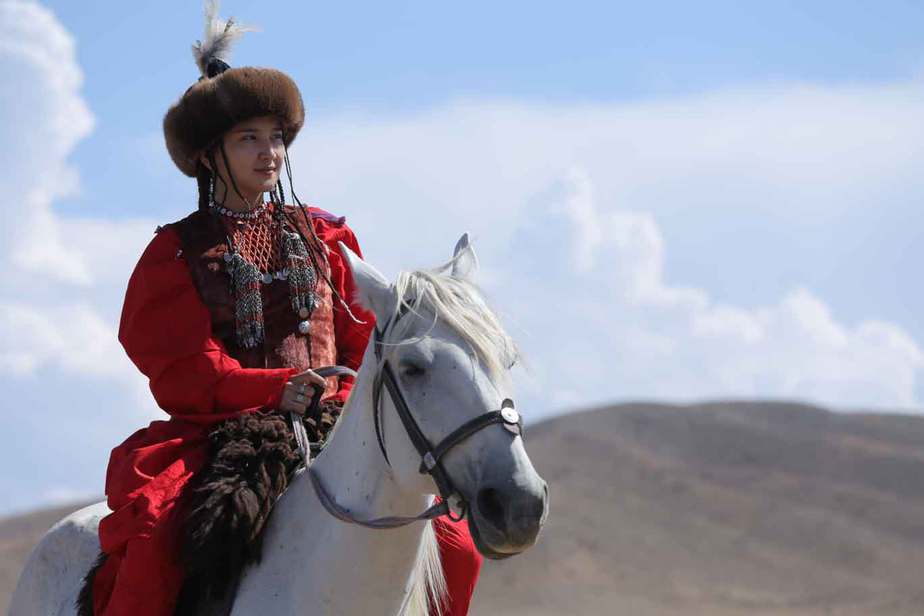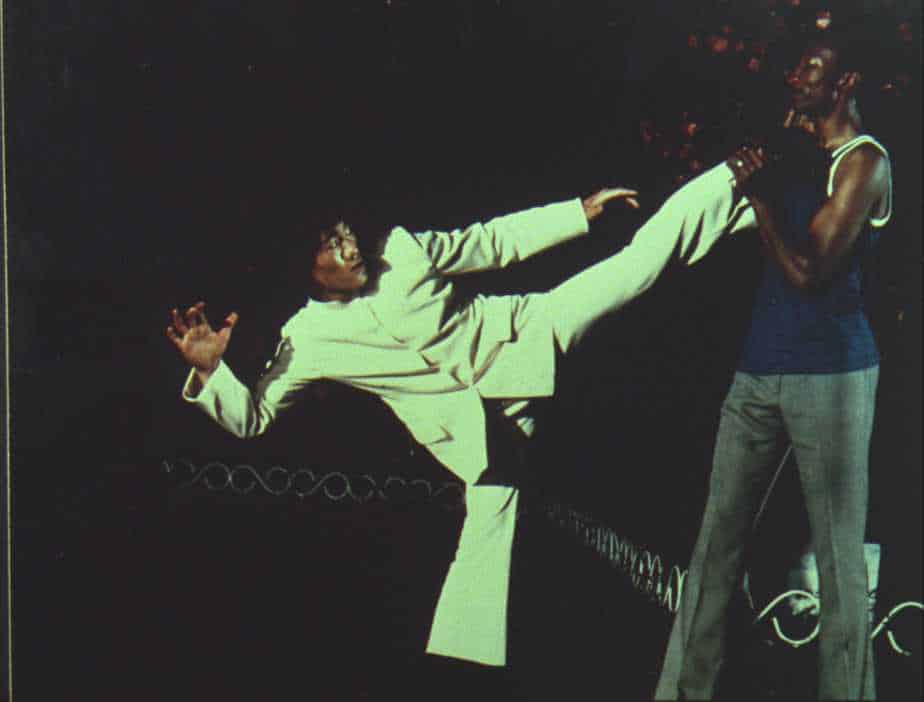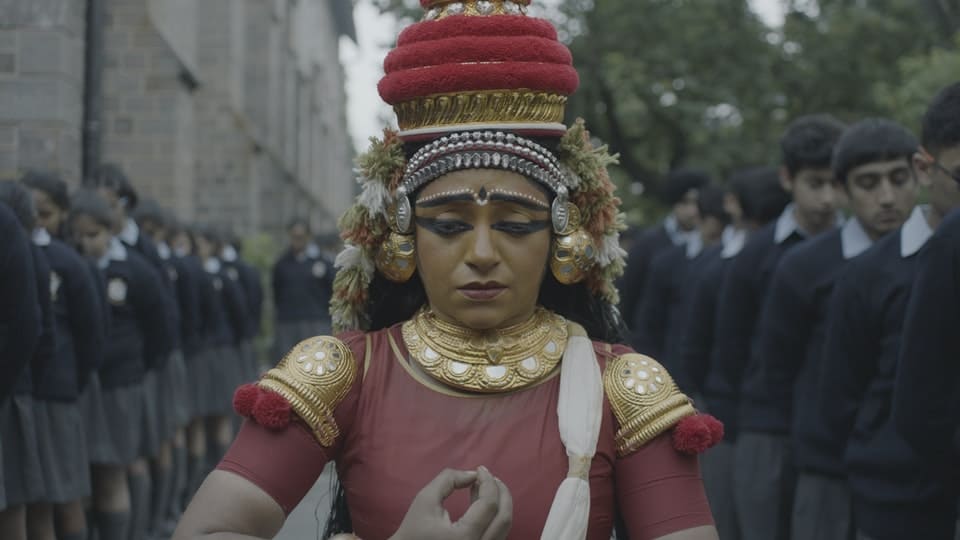A love of the land and its people seem to come part and parcel with the cinematic traditions of Central Asia, with Sadyk Sher-Niyaz's ‘Queen of the Mountains' serving as a recent example of this, fuelling a passionate fire for national pride. A public figure with a political history in his home land, Sher-Niyaz also founded the Asian World Film Festival in L.A. to help promote the voices of the sprawling Asian continent underrepresented on the world stage. Making its international premiere at Busan International Film Festival, however, is the Sher-Niyaz co-written venture with director Aibek Daiyrbekov ‘The Song of the Tree', a vivid retelling of such Kyrgyz folklore through warm and inviting musical numbers against an unforgettable tapestry of the Tien Shan range.
The Song of the Tree had its international premiere at Busan International Film Festival

Set during the 1800s, Kyrgyzstan's first ever musical tells of the love between Esen (Omurbek Izrailov) and Begimai (Saltanat Bakaeva) and the journey the former takes towards manhood and acceptance with his people. After Esen steals meat for a wedding feast, the tribal leader Bazarbai (Temirlan Smanbekov) banishes him and orders the cutting of the sacred tree down for firewood. Begimai, Bezerbai's daughter, runs off with Esen but is brought back, leaving Esen for dead. With livestock dying all around them, the blame falls on Bazarbai for his decisions, prompting the clan to exile him and his family from his ancestral homeland; unable to adjust to the life of outcasts, they are forced to selling heirlooms for food. From here on, Daiyrbekov keeps our attention on the paths reuniting the lovers and leading to a showdown between Esen and Oguz (Jurduzbek Kaseivov), the man responsible for cutting the tree down and murdering his brother.

Despite being based on true stories and folklore passed down through the director's family, the film bears resemblance to many tropes of Western cinema, particularly musicals and coming-of-age dramas. However, instead of rendering ‘The Song of the Tree' as yet another movie we may have seen before, this sense of familiarity transcends cinema and unites the principles of traditional storytelling; it certainly has this aura of an oral retelling of ancient tales – The Tale of Esen and Begimai if you will – of the origins of a people, of overthrowing adversity, where song and music would tell these stories. Unlike many musicals, Zholdoshbek Apasov's compositions and Baktygal Choturova's lyrics bear the resemblance of ballads – the use of ethnic instruments serves this sentiment well – whilst perfectly matching the mood of each segment. They perfectly capture the flow of nomadic life, a concept interwoven into the film's core and reminds one of the films of Byambasuren Davaa.
It is a film which revels in its simplicity: everything from its direction, the character's motivations, the acting, even in the story itself, the essence of such a simple yet hierarchical lifestyle is captured in these details. Not one thing stands out above anything else – as far as musicals are concerned, it relinquishes the archetypical foundations of Hollywood and Bollywood films where the song-and-dance routines are the spectacle. It is a choice serving beneficial to the film's very existence but does allow for its weaknesses to be seen as plain as the yurts across the Tian Shan; moments such as Bazarbai's lack of resistance in his removal, Esen's vow for revenge and his relationship with the hunter who saves his life and mentors him tend to feel like they exist because the plot demands them to exist. At times our actors seem to lack any emotion or feeling – all of this however could be attributed to the nature of the stories told and do not in any way deter from the overall experience of ‘The Song of the Tree'.

The real star though, much with a lot of Central Asian cinema, is the DP. Akzol Bekbolotov's pristine cinematography captures the breath-taking beauty of Kyrgyzstan in every frame. Full of vivid colour, the camera invites its audience to roam a land almost long-forgotten by the rest of the world, showing off every conceivable terrain within this landlocked country, each one serving its own purpose in the passing of the story. Its richness wonderfully complements the musical numbers and the narrative they conjure – these moments are also where editor Eldiyar Madakim delivers (the editing otherwise is hit-and-miss). All of this also translates in the costume design and makeup artistry, adding depth to the warm vibrancy which permeates through its ninety-minute runtime.
To say ‘The Song of the Tree' is a gorgeous film to watch is an understatement. What it lacks in drive it more than makes up for in scope and texture. Its simplicity and reconstruction of the nomadic narrative is its selling point and makes for an effortless and colourful watch. Competently illustrating such a lifestyle, heavy in sacred beliefs through a musical makes for a challenging feat but Daiyrbekov accomplishes this almost with ease, the end product makes for a near masterful triumph after toiling for as long as the cast and crew have in its production. With Sher-Niyaz doing all he can to promote the underrepresented voices in Asian cinema there is hope this film will continue on through the festival circuit receiving all the praise it truly deserves.















